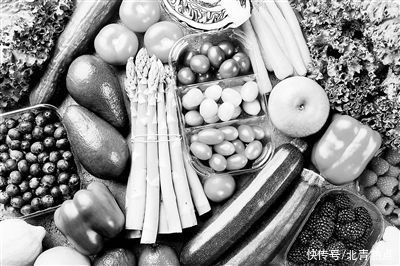
On July 16th of this year, it has officially entered the volt. The dog days are the hottest time of the year, usually prone to high temperature and frequent precipitation. The feeling is stuffy and hot. Usually, when the working environment temperature exceeds 32°C or the living environment temperature exceeds 35°C, it is called a high temperature environment. In such a situation, the body’s metabolism changes. With the discharge of sweat, the body will lose a lot of water, and at the same time, it will consume a lot of water-soluble vitamins, nitrogen compounds, minerals in the body, especially sodium, potassium, magnesium, calcium, and some people also lose iron. If there is no scientific diet, this physiological adaptation will cause a series of problems, such as being more prone to heat stroke, dizziness, heart palpitations, nausea, vomiting, diarrhea, indigestion, muscle anemia, weight loss and other problems.
A lot of articles on the Internet say that you should eat more of this and less of that on the scientific diet and nutrition advice for dog days, but it is indeed a bit confusing to implement specific diets. In fact, as long as you master the nutritional principles in a high temperature environment, you can easily implement the nutritional theory into your daily diet in the way of a dietary pagoda.
1. Ensuring sufficient protein and the combination of coarse and fine grains
The combination of meat and vegetables can better ensure adequate protein sources, because nitrogen-containing compounds mainly come from protein in the human body, and it is easy to lack sources. lead to negative nitrogen balance in the human body.
As the temperature rises, the metabolism of the human body will also increase. The thickness of the staple food can better ensure the amount of the staple food, and at the same time allow the diet to provide more B vitamins. Traditional Chinese medicine also believes that it is necessary to take appropriate supplements and increase protein-rich foods. Some seriously sub-healthy people or people with diseases will have a weaker digestion ability of food due to physical reasons, so they can supplement by increasing plant-based proteins. However, this is often misunderstood as a vegetarian only, and a vegetarian diet lacking beans and their products.
Ensure that there is protein food every day. After the temperature rises, the appetite is not good. Some people will not want to eat animal food. It is necessary to increase the amount of beans and their products to ensure that high-quality protein accounts for the total protein. half and more.
2. Sufficient water, mainly soup, balanced sodium and potassium
High temperature causes the human body to lose a lot of water and minerals through perspiration and urination, so the human body is prone to sodium deficiency, A series of problems caused by potassium deficiency and magnesium deficiency. Actively replenish water and add salt water every day when necessary. In traditional Chinese medicine, it is recommended to eat salty food for nourishing the heart. In fact, it also pays attention to the balance of sodium and potassium.
In addition to increasing drinking water daily, be sure to pay attention to supplementing water and salt in the form of soup. People who sweat a lot also need to add salty drinks between meals, and the concentration of sodium chloride is controlled at 0.1%. Of course, also pay attention to try to make the soup as clear as possible, not too much oily soup.
Drink plenty of water, often in small amounts. During dog days, at least 2,000 ml for adults with low physical activity levels. It is recommended to drink plain water or tea, drink less or no sugar-sweetened beverages, and do not use beverages instead of plain water.
Also, emphasize more fruits, especially water-rich foods.
3. Increase sourness and bitterness, and cook carefully
In dog days, it is easy to lose appetite, increase acidity and bitterness, which can help improve appetite and promote digestion. Rich colors will also make eating more delicious.
The general summary of traditional Chinese medicine for summer health care is to nourish the heart, eat less raw and cold food, drink more water, eat a light diet, and increase acidity and bitterness. The purpose is to increase the adaptability of the human body to high temperature and prevent heat syndrome, thereby increasing the adaptability to climate change in autumn and winter. Under high temperature, electrolyte imbalance occurs in the human body, and problems such as palpitations and arrhythmias are prone to occur, which coincides with the purpose of nourishing the heart advocated by traditional Chinese medicine.
Chinese medicine advocates more acid and bitterness. On the one hand, it is believed to help improve appetite, such as red into the heart, tomatoes, and hawthorn. On the other hand, it is believed to help reduce the loss of digestive juice and sweat in the body. If you are sweating excessively or have a restricted diet, consider supplementing with a vitamin-mineral tablet.
4. Reducing cold drinks and rejecting coldness
The relatively unique aspect of traditional Chinese medicine health care is to reduce the frequency of eating cold drinks and cold foods.
In addition, we have some small tips to ensure that you can easily spend the dog days:
First, in addition to drinking water, you can add red bean soup, mung bean soup, and sour plum soup, which will quench your thirst more Cool off.
Secondly, in order to prevent weight loss, people with obvious poor appetite can eat small meals frequently.
Third, the meal time can also be adjusted appropriately. For example, the breakfast time can be earlier and the dinner time can be pushed back a little, so that the temperature difference will be cooler than the daytime, and the appetite will be slightly better.
Text/Wei Linlin
(Member of Chinese Nutrition Society, Traditional Chinese Medicine Physician of Community Health Service Center of Fuqiang Road Office, Qingshan District, Baotou City)